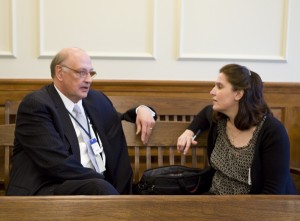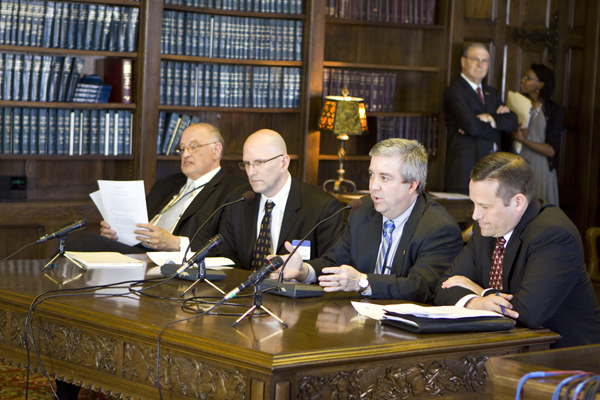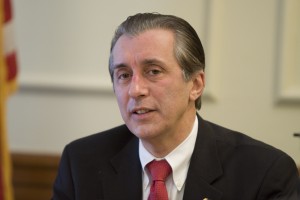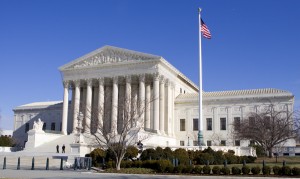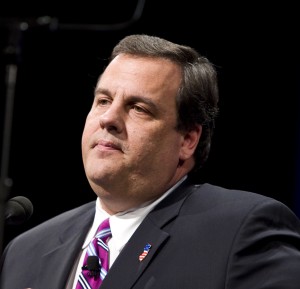The bill is supported as a core element of the business & industry’s attack on costly but much needed environmental protections, which they have scapegoated as causes of the economic recession. A broad attack by polluters is capitalizing on the economic crisis to accomplish long sought rollbacks, under the pretext of reducing “red tape“, promoting investment, and making NJ economically competitive.
The bill would stand 40 years of federal and state environmental law on its head. NJ has long led the nation with scores of progressive environmental initiatives, while NJ has severe environmental challenges that fully warrant stronger protections than national minimums. Amendments, not available at the time of the hearing, exempted existing regulations, but did not eliminate the barrier to much needed new regulations to achieve things like global warming emissions reductions and compliance with clean air and water standards.
The New Deal governing model initially was resisted by the US Supreme Court under a 19th century “delegation doctrine“. The New Deal model has long been opposed by business interests and attacked by ideological extremist right wing legal advocates at places like the Federalist Society and Cato Institute.
The bill would require Legislative approval of specific regulatory proposals. That puts the Legislature – who lacks expertise and staff capability to make complex scientific judgments – in charge. This basically restores the non-delegation doctrine in effect before the New Deal.
Testimony on Assembly bill No. A-2486
Assembly Regulatory Oversight Committee
Bill Wolfe, Director
NJ Public Employees for Environmental Responsibility (PEER)
March 18, 2010
Mr. Chairman and members of the Committee, thank you for the opportunity to testify. I am Bill Wolfe, Director of NJ PEER, a national organization that supports professionals in environmental agencies; promotes scientific integrity and transparency; and seeks strict enforcement of environmental laws and ethics. I previously was employed for 13 years by DEP, where I worked on numerous legislative and regulatory initiatives.
I am here to oppose the bill for the following reasons:
1. The bill would stand the framework of 40 years of federal and state environmental law on its head. Federal environmental laws set minimum national standards and states have consistently adopted stricter state level regulatory standards.
In fact, federal preemption of state environmental law to set uniform national standards is rare.
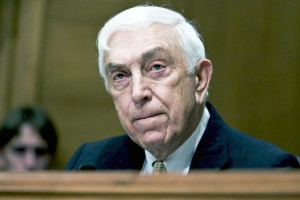
NJ US Senator Frank Lautenberg
I recall a recent controversial major battle over the preemption issue whereby NJ Senator Frank Lautenberg secured amendments to preserve NJ’s right to more strictly regulate chemical facilities under NJ TCPA law, as opposed to federal preemption under the Clean Air Act’s Section 112 R accidental release prevention and Homeland Security programs.
Let me offer an illustration of what’s at stake here. This issue of federal standards and regulatory relief was last the subject of debate during the Whitman Administration and her STARR Report and EO 27:
At that time, we disclosed a July 29, 1994 memo from then DEP Assistant Commissioner Lou Nagy to Commissioner Shinn. The memo compared DEP’s strict standards with weaker EPA requirements and warned of a significant increase in the number of potential fatalities. This was not some tree hugger warning, it came from Shinn’s own Assistant Commissioner (complete memo found on page 126 of Whitman EPA confirmation transcript) who wrote to Shinn to warn about:
“Industry (e.g., CIC and NJBIA) would obviously prefer backing off to the EPA thresholds.However, the increases made by EPA on adoption were so large (averaging some 18 times the TCPA values with 33 of the 60 substances common to both lists assigned from 5 to 167 times corresponding TCPA values) that they are not technically justifiable in an area as densely populated as New Jersey where substances are generally handled on small sites, and would correlate with a significant increase in the number of potential fatalities.”
2. This bill would create chaos in current DEP environmental programs and amount to a dismantling of NJ environmental and public health protections.
The NJ Legislature has enacted numerous laws that authorize DEP to adopt regulatory standards.
In my recent testimony on A2464, I listed 44 specific DEP regulatory programs where DEP has adopted regulations that exceed or fill gaps in federal programs. I do not wish to repeat that list today, but would add MTBE, radon and at least 14 other NJ specific drinking water standards as further evidence. In fact, the Legislature enacted the NJ Safe Drinking Water Act as a result of inaction and under-regulation by US EPA.
I am not aware of any NJ law that contains a provision that “specifically authorized” DEP to “exceed standards or requirements set forth by the federal government”, as provided in Section 1 of the bill.
As I read Section 1, this would prohibit DEP from filing any rule proposals for new rules or for re-adoption of existing rules – that exceeded federal standards or requirements.
3, Last, I am unaware of any credible publicly released Report or peer reviewed evidence that support or justify the objectives of the bill, which appear to be to rollback NJ’s environmental and public health protections.
- Just what is the problem this bill seeks to fix?
- What DEP regulatory requirements are targeted?
- Why is current law federal standards analysis under Executive Order 27 (Whitman, 1994) and P.L. 1995, c. 65, not working?
Attachment 1 “Whitman Defense of Federal Standards Policy” (Source: Congressional Record: Whitman Confirmation hearing, response to environmental critics (see above link)
Response On Executive Order 27: Executive Order 27 (EO 27) stated that State agencies should consider applicable Federal standards when adopting regulations 136 that have Federal counterparts and should analyze whether existing Federal standards sufficiently protect the health of New Jersey’s citizens. When DEP determines that New Jersey needs more stringent standards, EO 27 simply requires us to explain that decision. Therefore, the Order does not prohibit DEP from adopting standards or regulations that are more stringent than their Federal counterpart and did not force DEP to weaken all existing standards in order to comply with the Order; New Jersey still has the flexibility to promulgate more stringent standards where necessary. In fact, after careful analyses, NJDEP has adopted numerous environmental standards or rules that are more stringent than EPA’s. Some examples include:
AIR
1. New Jersey’s standards for mercury emissions from municipal solid waste incinerators are more stringent than EPA’s. EPA standard is 80 ug/m3 or 85 percent control and New Jersey is 28 ug/m3 or 80 percent control. New Jersey’s standards were effective 1/1/96 whereas EPA’s just came into effect in 12/00.
2. New Jersey’s air toxics program is more comprehensive than EPA’s. New Jersey requires facilities to list air toxic emissions on their permits if they exceed a predefined threshold value. This would then potentially trigger a risk assessment by DEP or the application of a state-of-the-art standard for those air toxics. EPA on the other hand only requires air toxics to be listed on a permit if EPA has promulgated an emission standard for the particular source operation being permitted.
3. EPA does not have NOx RACT rules per se, but the NOx standards in their acid rain rules are less stringent than the NOx standards in our NOx RACT rules.
4. The stringent NOx standards for power plants in our NOx budget rules (.15 lbs/mwh) set the stage for EPA’s subsequent SIP call to 22 States.
5. Our preconstruction permitting program (Subchapter for new and modified non-major sources is more comprehensive than EPA’s. EPA’s permitting trigger is between 100 tons per year of a given pollutant whereas New Jersey’s trigger (although it’s equipment based) equates to as low as approximately one ton per year.
HAZARDOUS WASTE
1. New Jersey’s 10 day transfer facility requirement is more stringent than EPA’s. We have standards for how waste must be managed during the 10 day holding period and we prohibit the mixing of unlike materials. Also, transporters must tell us that they’re operating a 10-day facility and must keep logs of material entering and exiting the facility. EPA does not have these requirements.
2. New Jersey requires hazardous waste generators to submit hazardous waste manifests (shipping papers), whereas EPA does not.
3. New Jersey requires hazardous waste transporters to be licensed, whereas EPA does not.
4. New Jersey requires entities to submit plans to us for approval before they can process used oil. EPA does not. Also, our standards for halogens in used oil fuel (1000 ppm) are more stringent than EPA’s (4000 ppm).
SOLID WASTE
1. We regulate transfer stations, transporters, and recycling facilities whereas EPA does not.
2. The Solid Waste Utility Control Act requires that people engaged in the solid waste business be regulated as a utility. New Jersey’s rules therefore set forth business practices, transaction standards, competition requirements and billing practices. There is no Federal counterpart to this.
3. The Comprehensive Regulated Medical Waste Management Act sets forth registration, transportation and waste handling requirements that are in addition to the solid waste requirements. This Act was based on a Federal version which has since lapsed. We are not aware of a Federal counterpart at this time.
4. The A-901 Disclosure Review Act sets forth standard that must be met in order for an entity to engage in the business of solid waste transportation or processing/disposal. There is no Federal counterpart to this Act.
SITE REMEDIATION
1. When determining whether a site is sufficiently remediated, in most cases we are more stringent than EPA. New Jersey applies a risk factor of 1—10(-6) (increased lifetime cancer risk) to individual contaminants whereas EPA applies a risk range of 1—10(-4) to 1—10(-6) and it is based on the cumulative impact of all contaminants.
2. We regulate large non-residential heating oil underground storage tanks (greater than 2,000 gallons), whereas EPA does not.
3. New Jersey requires that only New Jersey licensed individuals perform work on Federal and state-regulated underground storage tanks. There is no corresponding Federal requirement.
4. New Jersey’s Industrial Site Recovery Act prohibits certain types of industrial properties from being sold or transferred unless they are remediated first. EPA does not have this requirement.
COASTAL MANAGEMENT
1. New Jersey’s freshwater wetlands program includes buffers in the definition of transition areas whereas EPA does not.
SAFE DRINKING WATER
1. New Jersey has 15 chemicals for which we either have more stringent standards than EPA or we have a standard whereas EPA does not. For example, for MTBE, we have a standard whereas EPA does not. Also, for trichlorethylene, New Jersey’s standard is 1 ppb, but the Federal standard is 5 ppb.
2. New Jersey has 13 drinking water standards that are more protective than Federal standards, and standards for 5 additional contaminants beyond those regulated at the Federal level.
WATER
1. New Jersey has regulations governing the construction of wastewater treatment and conveyance systems whereas EPA does not.
2. New Jersey permits all discharges to groundwater whereas EPA only permits underground injection and discharges at RCRA facilities.
3. The State law commonly known as the Clean Water Enforcement act (CWEA) has a number of provisions which are more stringent than the Federal Clean Water Act. In particular, the CWEA requires the Department or Delegated Local Agency to impose mandatory penalties for monitoring omissions or effluent violations that are serious violations or that cause the violator to become a significant non-complier.
PESTICIDES
The following pesticide initiatives/rules go beyond EPA programs and requirements Requirements for notification of the public prior to applications of pesticides so the public may take precautions to minimize exposure if deemed necessary.
1. Require commercial applicators to be licensed and certified (take exams) prior to using any pesticides, not just the more hazardous “restricted use” pesticides, as an additional protective measure. Require annual refresher training for agricultural workers.
2. Rules on applications conducted in schools in order to be protective of children, who are a vulnerable population.
3. Extensive regulations to prevent contamination, risk and exposure in homes and public buildings during structural pest control applications.
4. Regulate an additional industry sector of dealers of restricted use pesticides through licensing and record keeping requirements.
5. Require permits for aquatic pesticide applications and mosquito control applications to prevent pesticide misapplications and contamination in bodies of water and hazardous exposure during large-scale community spray programs.
RELEASE PREVENTION
1. New Jersey’s discharge prevention program is more stringent than the Federal requirements in that the State program covers a vast array of chemicals as well as petroleum and petroleum products. In addition, all plans required to be developed under New Jersey rules must be submitted to NJDEP for approval, while Federal plans are only required to be submitted for facilities with over one million gallons of storage or facilities that have a discharge. The State program inspects all regulated facilities once a year, and also inspects some non-regulated facilities whereas the Federal program inspects only a fraction of the regulated universe.
2. New Jersey’s TCPA (Toxic Catastrophe Prevention Act) program is more stringent than the Federal program as follows: more covered chemicals; lower thresholds for some chemicals; more reporting requirements; and more inspections per year. Also, the State program requires a risk reduction effort after a hazard analysis is performed.
3. New Jersey’s RTK chemical inventory reporting program is more stringent than the Federal program in that employers must report regulated chemicals at a 500 pound threshold rather than the 10,000 pound Federal threshold. The State’s environmental release reporting program requires reporting at 10,000 pounds rather than the Federal 25,000 pounds. Also, the State program includes materials accounting where the Federal program does not.

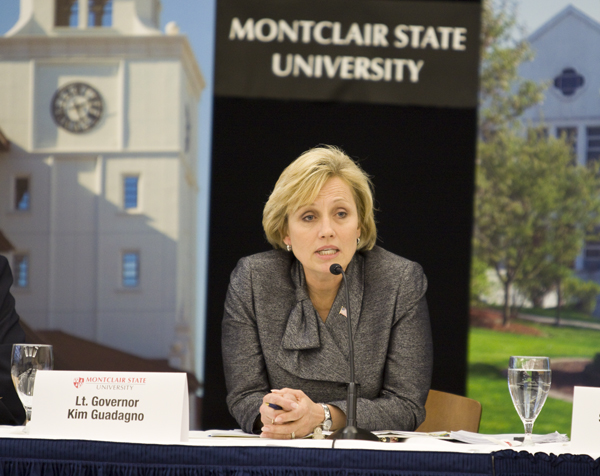

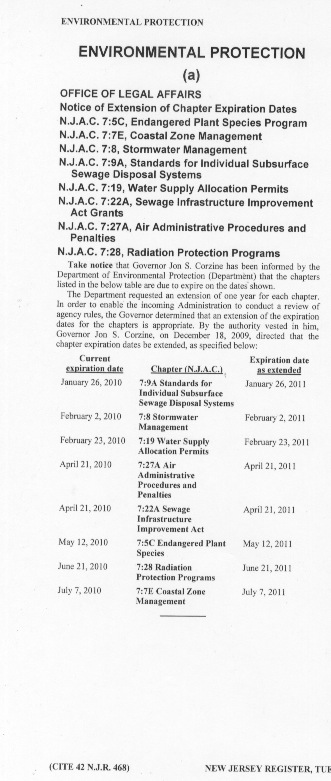 Failing the straight face test #2:
Failing the straight face test #2:
